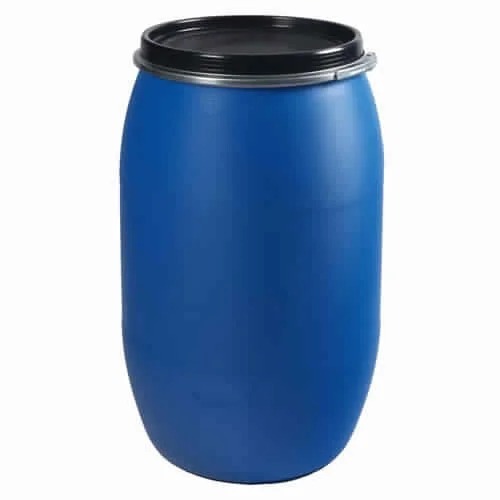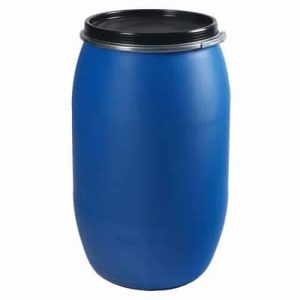Product Details
Formic Acid 200Ltr Drum
Formic acid, a simple organic compound with a distinct odor and acidic properties, holds a significant place in various industries due to its diverse applications and numerous benefits. Despite its relatively small size, formic acid plays pivotal roles in agriculture, chemical synthesis, leather processing, and even as an environmentally friendly alternative in some applications. Let’s delve into the intricacies of formic acid, unraveling its benefits and the myriad ways it contributes to different sectors.
Description
Formic Acid: Unveiling Its Benefits and Varied Applications
Formic acid, a simple organic compound with a distinct odor and acidic properties, holds a significant place in various industries due to its diverse applications and numerous benefits. Despite its relatively small size, formic acid plays pivotal roles in agriculture, chemical synthesis, leather processing, and even as an environmentally friendly alternative in some applications. Let’s delve into the intricacies of formic acid, unraveling its benefits and the myriad ways it contributes to different sectors.
Chemical Composition and Properties:
Formic acid, with the chemical formula HCOOH or CH₂O₂, is the simplest carboxylic acid, comprising a carboxyl group (-COOH) attached to a hydrogen atom. It exists as a colorless liquid with a pungent odor and is highly soluble in water and polar solvents. Formic acid is naturally found in ants, stinging nettles, and some other plants, but it is primarily produced industrially through the oxidation of methanol.
Applications and Benefits:
- Agriculture and Animal Husbandry: Formic acid is widely used in agriculture and animal husbandry as a preservative, antibacterial agent, and feed additive. It serves as a natural preservative for silage, inhibiting the growth of spoilage microorganisms and promoting fermentation. Formic acid-based feed additives help improve feed hygiene, control pathogenic bacteria in animal intestines, and enhance nutrient absorption, leading to better animal health and performance.
- Chemical Synthesis and Manufacturing: In chemical synthesis, formic acid serves as a versatile building block for the production of various organic compounds and specialty chemicals. It is utilized in the synthesis of pharmaceuticals, dyes, pesticides, and perfumes. Formic acid is also employed as a reducing agent and catalyst in certain chemical reactions, such as the synthesis of formate salts, esters, and formamides.
- Leather Tanning and Textile Processing: Formic acid plays a crucial role in leather tanning and textile processing as a pickling agent and pH adjuster. It helps remove hair, grease, and other impurities from raw hides and skins during the initial stages of leather processing. Formic acid-based solutions are utilized for deliming, bating, and neutralizing processes in leather tanning, resulting in soft, supple, and durable leather products. In textile processing, formic acid is used for dye fixing, color stripping, and pH adjustment.
- Cleaning and Descaling Agent: Formic acid is employed as a cleaning and descaling agent in industrial and household applications. It effectively removes mineral deposits, rust stains, and scale buildup from metal surfaces, pipes, and equipment. Formic acid-based descalers are utilized in boiler cleaning, metal surface treatment, and industrial maintenance processes. In household cleaning products, formic acid provides efficient stain removal and surface disinfection properties.
- Environmental Applications: Formic acid serves as an environmentally friendly alternative to traditional solvents and deicing agents due to its biodegradability and low toxicity. It is utilized as a solvent for eco-friendly cleaning products, paint strippers, and degreasers. Formic acid-based deicers are used for removing ice and snow from roads, sidewalks, and airport runways, offering effective ice melting properties without harming the environment or corroding infrastructure.
- Biomedical and Pharmaceutical Uses: In the biomedical and pharmaceutical fields, formic acid finds applications in research, diagnostic assays, and drug formulations. It is utilized as a solvent for protein extraction, chromatography, and mass spectrometry analysis. Formic acid solutions are employed as fixatives and preservatives for biological samples in histology and pathology laboratories. Additionally, formic acid derivatives such as formates and esters are utilized in pharmaceutical formulations for drug delivery and stability enhancement.
Conclusion:
In conclusion, formic acid emerges as a versatile and indispensable chemical compound with a multitude of applications and benefits across diverse industries. From its role in agriculture and chemical synthesis to its contributions in leather processing, cleaning, and environmental applications, formic acid plays a vital role in enhancing product quality, efficiency, and sustainability. As industries continue to innovate and address evolving challenges, the responsible use of formic acid in accordance with regulatory guidelines is crucial to maximizing its benefits while minimizing potential risks to human health and the environment.





Reviews
There are no reviews yet.